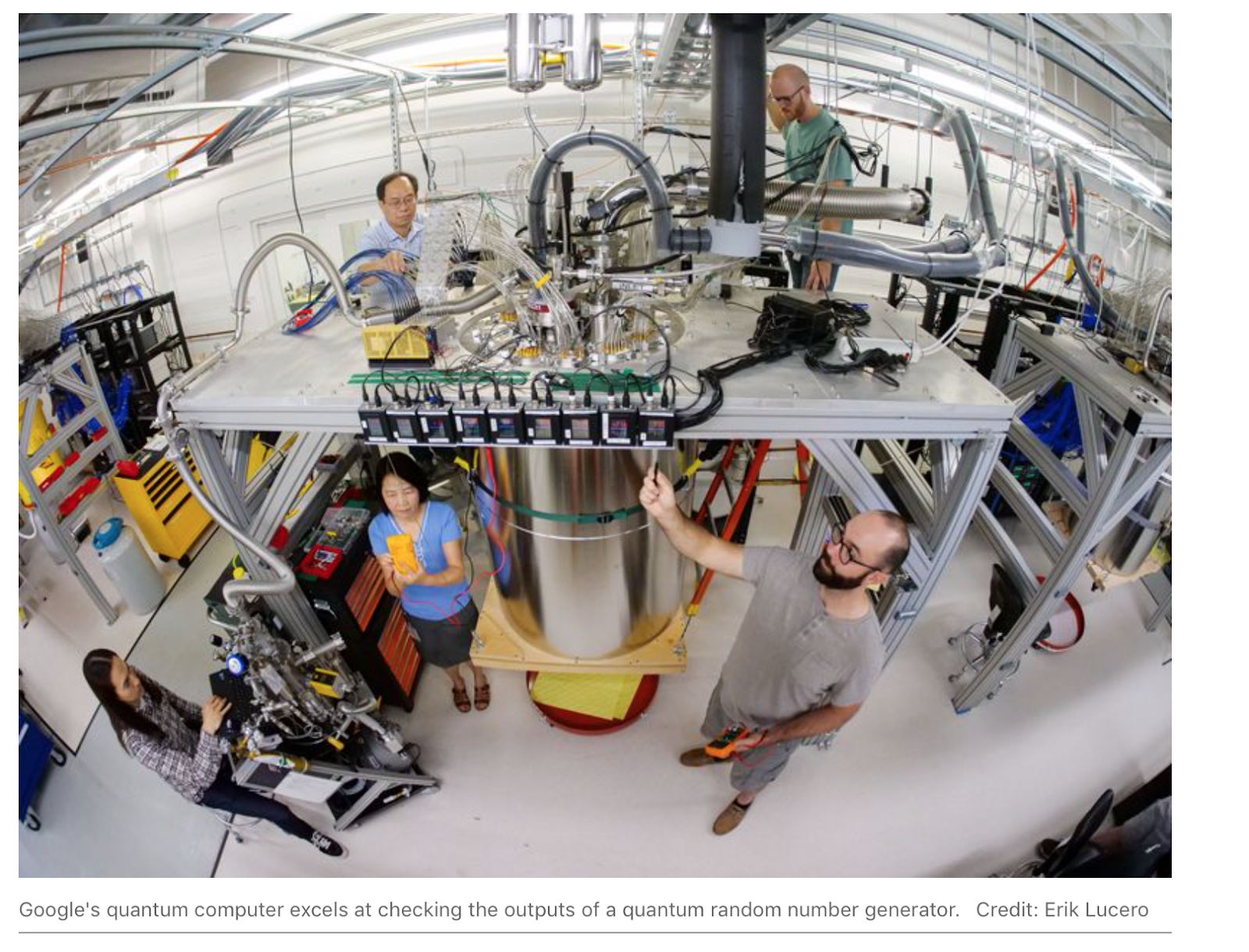Quantum Computing & Leadership in the Digital Economy
On Wednesday, October 23, in the journal Nature, the Google AI team — led by John Martini — claimed that their Quantum Computer, Sycamore, had reached “Quantum Supremacy.
According to Google.AI, Sycamore took 200 seconds to perform a calculation that would take even the best classical supercomputer 10,000 years to complete. But is that the whole truth?
Not according to IBM, who is also in the race to build the world’s best quantum computers. According to IBM, the problem could be solved in just 2.5 days using a different classical technique. If what IBM says is true, then Sycamore would simply be at a “Quantum Advantage,” faster than — but not out of reach of — existing supercomputers.
Though scientists are still debating the magnitude of Google.AI’s accomplishment and whether it demonstrates true supremacy or mere advantage, what we do know is that quantum computers will not be replacing digital computers any time soon. However, if harnessed with democratic and ethical principles, the innovations and solutions that quantum computing can bring to our world are mind-boggling, albeit highly speculative at this point.
Less uncertain: the fact that leaders in our digital age, the 4th Industrial Revolution, must be able not only to learn to thrive in a world of change, but to lead from the future. We must understand, track, and learn about the emerging field of quantum mechanics.
Technological advances are happening in exponential leaps and bounds. The graph below illustrates the pace at which technology is far outpacing our ability as human beings to adapt and catch up with it.
Every time I show my clients — whether executives or their teams and organizations — this diagram, they immediately understand why they have been stressed out of their wits and why the culture in their workspace seems to be increasingly hijacked by a sense of disengagement. It quickly dawns on them that it’s a losing game to keep up; the gap is only going to get wider and wider.
People feel doomed — how can they operate in this environment? How can they take care of the people that depend on them? The real question is: why are you worried about losing a game you shouldn’t be playing in the first place? Instead, create your own game.
Every individual has a choice to use the game instead of being used by it — so does every company and system. Even more, we can all co-create our own games, and in turn co-create a “game” that works for all of humanity and the planet. That is, with the right mindset, methodologies, and tools to do so. My hope is that leaders in all sectors of society learn how to tap into things like the quantum field to learn how to make better decisions faster, and work and live with “flow.” They can sit at the center of the ripple effect the world needs to live from a higher consciousness and get out of the rat race of self-destruction.
What’s the alternative? Sit on the sidelines and let other people decide how your life and the future will go? Will you choose to play a fruitless game of chase, or are you willing to put in the effort — to learn a new language, to expand your curiosity and understanding of the world, of physics, biology, neuroscience, and take the baby steps required to rewire your brain and seek change?
If you’re ready and willing, here are a few steps you can take towards embracing change at whatever speed — and quark level — it may be:
Believe you can understand physics and the world of computing. If you can’t believe it, you will never be able to move beyond this point (I talk about how to change your belief systems in another post, here).
Learn the basics of quantum mechanics. In my opinion, everyone should at least know what entanglement and non-locality mean.
Watch these videos, and open up your mind:



